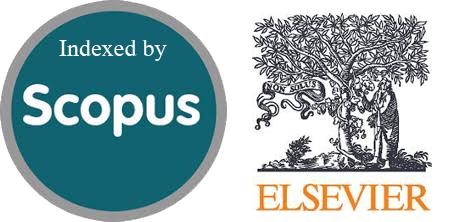Genetic Predictors of Resistance and Survival in Oxaliplatin-Treated Iraqi Patients with Colorectal Cancer
DOI:
https://doi.org/10.54133/ajms.v8i2.2019Keywords:
Chemotherapy, Colorectal cancer, GSTP1, Oxaliplatin, rs1695, PharmacogeneticsAbstract
Background: Resistance to oxaliplatin-based chemotherapy critically limits treatment efficacy in colorectal cancer (CRC), a leading cause of cancer mortality. While GSTP1 polymorphisms have been studied in other ethnic groups, their impact remains unclear in Middle Eastern populations. Objective: To evaluate the association of GSTP1 rs1695 and rs1138272 polymorphisms with treatment resistance and survival outcomes in Iraqi CRC patients undergoing oxaliplatin-based chemotherapy, considering relevant clinical variables. Methods: A prospective cohort of 120 Iraqi CRC patients was followed for 12 months. Genotyping for GSTP1 variants was performed using PCR and Sanger sequencing. Clinical data, chemotherapy protocols, and survival metrics were collected. Hazard ratios (HRs) for progression-free survival (PFS) and overall survival (OS) were estimated using Cox regression models. Results: Univariate analysis revealed significant risk factors for progression: liver metastasis (HR=2.19), palliative chemotherapy (HR=1.94), elevated baseline CEA (HR=1.77), and FOLFOX+ bevacizumab treatment (HR=3.78). The GSTP1 rs1695 AG (HR=0.28) and GG (HR=0.18) genotypes showed protective effects. In multivariate analysis, the rs1695 GG genotype independently predicted reduced progression (HR=0.42) and mortality (HR=0.25). FOLFOX-based regimens, especially with bevacizumab, were associated with worse outcomes than XELOX. Grade 2 neurotoxicity correlated with longer PFS. Conclusions: The GSTP1 rs1695 GG genotype is associated with improved survival and reduced progression in oxaliplatin-treated CRC patients, while FOLFOX-based regimens may confer a higher risk. Genotyping GSTP1 may support individualized therapy optimization.
Downloads
References
Bakir WA, Ismail NH, Latif AH, Abd DW, Saied ZZ. Cytotoxicity-associated gene (CagA) producing Helicobacter pylori increased risk of developing colorectal carcinoma in Iraqi Patients. Al Mustansiriyah J Pharm Sci. 2014;14(1):143-149. doi: 10.32947/ajps.v14i1.139. DOI: https://doi.org/10.32947/ajps.v14i1.139
Maksimova PE, Golubinskaya EP, Seferov BD, Zyablitskaya EY. Colorectal cancer: epidemiology, carcinogenesis, molecular subtypes and cellular mechanisms of therapy resistance (analytical review). Koloproktologia. 2023;22(2):160-171. doi: 10.33878/2073-7556-2023-22-2-160-171. DOI: https://doi.org/10.33878/2073-7556-2023-22-2-160-171
Al-Saigh TH, Abdulmawjood SA, Ahmed FA. Prognostic factor of serum carcinoembryonic antigen in colorectal cancer patients: a follow up study. Al Mustansiriyah J Pharm Sci. 2022;21(3):1-6. doi: 10.32947/ajps.v21i3.791. DOI: https://doi.org/10.32947/ajps.v21i3.791
Zhou QN, Lei RE, Liang YX, Li SQ, Guo XW, Hu BL. Oxaliplatin related lncRNAs prognostic models predict the prognosis of patients given oxaliplatin-based chemotherapy. Cancer Cell Int. 2023;23(1):103. doi: 10.1186/s12935-023-02945-3. DOI: https://doi.org/10.1186/s12935-023-02945-3
Park SY, Chung YS, Park SY, Kim SH. Role of AMPK in regulation of oxaliplatin-resistant human colorectal cancer. Biomedicines. 2022;10(11):2690. doi: 10.3390/biomedicines10112690. DOI: https://doi.org/10.3390/biomedicines10112690
Pljesa-Ercegovac M, Savic-Radojevic A, Matic M, Coric V, Djukic T, Radic T, et al. Glutathione transferases: Potential targets to overcome chemoresistance in solid tumors. Int J Mol Sci. 2018;19(12):3785. doi: 10.3390/ijms19123785. DOI: https://doi.org/10.3390/ijms19123785
Marin JJG, Macias RIR, Monte MJ, Herraez E, Peleteiro-Vigil A, Blas BS, et al. Cellular mechanisms accounting for the refractoriness of colorectal carcinoma to pharmacological treatment. Cancers (Basel). 2020;12(9):2605. doi: 10.3390/cancers12092605. DOI: https://doi.org/10.3390/cancers12092605
Chen M, Yang B, Kuo W, Wu S, Wang T, Yeh Y, et al. The involvement of Aurora‐A and p53 in oxaliplatin‐resistant colon cancer cells. J Cell Biochem. 2023;124(4):619-632. doi: 10.1002/jcb.30394. DOI: https://doi.org/10.1002/jcb.30394
Imbaby S, Elkholy SE, Faisal S, Abdelmaogood AKK, Mehana AE, Mansour BSA, et al. The GSTP1/MAPKs/BIM/SMAC modulatory actions of nitazoxanide: Bioinformatics and experimental evidence in subcutaneous solid Ehrlich carcinoma-inoculated mice. Life Sci. 2023;319:121496. doi: 10.1016/j.lfs.2023.121496. DOI: https://doi.org/10.1016/j.lfs.2023.121496
Pan S, Li Z, He Z, Qiu J, Zhou S. Molecular mechanisms for tumour resistance to chemotherapy. Clin Exp Pharmacol Physiol. 2016;43(8):723-737. doi: 10.1111/1440-1681.12581. DOI: https://doi.org/10.1111/1440-1681.12581
Jawad RAM, Mshimesh BAR, Al-Mayah QS, Al-Alloosh F. A case study on complete pathological response in advanced rectal cancer patient with oxaliplatin-based chemotherapy without cumulative neurotoxicity. J Gastrointest Cancer. 2025;56(1):99. doi: 10.1007/s12029-025-01227-7. DOI: https://doi.org/10.1007/s12029-025-01227-7
Ijam AH, Mshimesh BA, Abdulamir AS. Analysis of cytochrome P450 2C9 gene polymorphism in a sample of Iraqi hypertensive patients. Med J Babylon. 2024;21(8):653. doi: 10.4103/MJBL.MJBL_1650_23. DOI: https://doi.org/10.4103/MJBL.MJBL_1650_23
Fedorinov DS, Lyadov VK, Abdullayev SP, Kachanova AA, Heydarov RN, Shashkov IA, et al. Pharmacogenetic markers of toxicity of FOLFOX/XELOX chemotherapy in patients with gastrointestinal tumors: a prospective observational study. Meditsinskiy Sov Med Counc. 2023;(18):175-184. doi: 10.21518/ms2023-384. DOI: https://doi.org/10.21518/ms2023-384
Brenner R, Amar-Farkash S, Klein-Brill A, Rosenberg-Katz K, Aran D. Comparative analysis of first-line FOLFOX treatment with and without anti-VEGF therapy in metastatic colorectal carcinoma: A real-world data study. Cancer Control. 2023;30. doi: 10.1177/10732748231202470. DOI: https://doi.org/10.1177/10732748231202470
Tang W, Ren L, Liu T, Ye Q, Wei Y, He G, et al. Bevacizumab plus mFOLFOX6 versus mFOLFOX6 alone as first-line treatment for RAS mutant unresectable colorectal liver-limited metastases: The BECOME randomized controlled trial. J Clin Oncol. 2020;38(27):3175-3184. doi: 10.1200/JCO.20.00174. DOI: https://doi.org/10.1200/JCO.20.00174
Yasuno M, Uetake H, Ishiguro M, Mizunuma N, Komori T, Miyata G, et al. mFOLFOX6 plus bevacizumab to treat liver-only metastases of colorectal cancer that are unsuitable for upfront resection (TRICC0808): a multicenter phase II trial comprising the final analysis for survival. Int J Clin Oncol. 2019;24(5):516-525. doi: 10.1007/s10147-018-01393-8. DOI: https://doi.org/10.1007/s10147-018-01393-8
Park JY, Kim SY, Lee JJ, Yoon HJ, Cho KS. The efficacy of a modified chronomodulated infusion of oxaliplatin, 5-Fluorouracil and leucovorin in advanced colorectal cancer (Preliminary Data). Cancer Res Treat. 2004;36(3):199. doi: 10.4143/crt.2004.36.3.199. DOI: https://doi.org/10.4143/crt.2004.36.3.199
Ma J, Waxman DJ. Combination of antiangiogenesis with chemotherapy for more effective cancer treatment. Mol Cancer Ther. 2008;7(12):3670-3684. doi: 10.1158/1535-7163.MCT-08-0715. DOI: https://doi.org/10.1158/1535-7163.MCT-08-0715
Sturrock M, Miller IS, Kang G, Hannis Arba'ie N, O'Farrell AC, Barat A, et al. Anti-angiogenic drug scheduling optimisation with application to colorectal cancer. Sci Rep. 2018;8(1):11182. doi: 10.1038/s41598-018-29318-5. DOI: https://doi.org/10.1038/s41598-018-29318-5
Hesse J, Malhan D, Yalҫin M, Aboumanify O, Basti A, Relógio A. An optimal time for treatment-predicting circadian time by machine learning and mathematical modelling. Cancers (Basel). 2020;12(11):3103. doi: 10.3390/cancers12113103. DOI: https://doi.org/10.3390/cancers12113103
Avallone A, Piccirillo MC, Nasti G, Rosati G, Carlomagno C, Di Gennaro E, et al. Effect of bevacizumab in combination with standard oxaliplatin-based regimens in patients with metastatic colorectal cancer. JAMA Netw Open. 2021;4(7):e2118475. doi: 10.1001/jamanetworkopen.2021.18475. DOI: https://doi.org/10.1001/jamanetworkopen.2021.18475

Downloads
Published
How to Cite
Issue
Section
License
Copyright (c) 2025 Al-Rafidain Journal of Medical Sciences ( ISSN 2789-3219 )

This work is licensed under a Creative Commons Attribution-NonCommercial-ShareAlike 4.0 International License.
Published by Al-Rafidain University College. This is an open access journal issued under the CC BY-NC-SA 4.0 license (https://creativecommons.org/licenses/by-nc-sa/4.0/).











